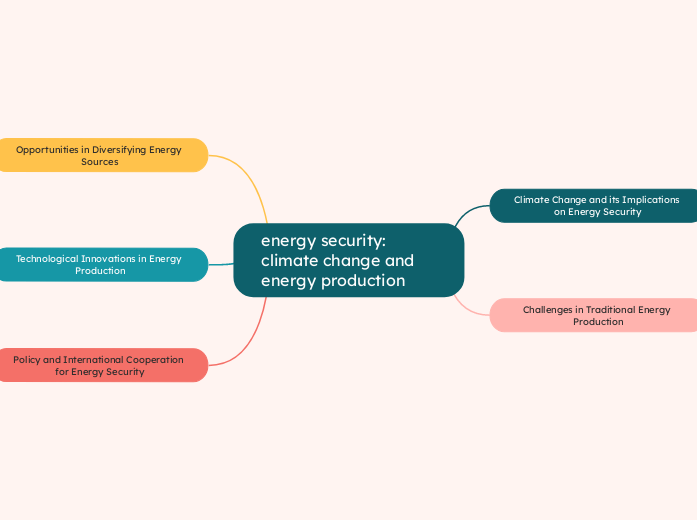energy security: climate change and energy production
Climate Change and its Implications on Energy Security
Rising global temperatures and extreme weather events
Increased demand for energy to combat climate change
Vulnerability of energy infrastructure to extreme weather
Shift towards renewable energy sources
Importance of reducing greenhouse gas emissions
Potential for increased energy security through renewables
Challenges in Traditional Energy Production
Dependence on fossil fuels
Limited supply and geopolitical implications
Environmental impact of fossil fuel extraction and combustion
Volatility in oil and gas markets
Economic implications of price fluctuations
Geopolitical tensions and energy supply disruptions
Opportunities in Diversifying Energy Sources
Expansion of renewable energy sector
Advancements in solar and wind technologies
Potential for decentralized energy production
Exploration of alternative energy sources
Nuclear power as a low-carbon option
Harnessing the potential of geothermal and tidal energy
Technological Innovations in Energy Production
Energy storage solutions
Importance of efficient energy storage for renewable integration
Advancements in battery technologies
Smart grids and energy management systems
Optimizing energy consumption and distribution
Integration of renewable energy sources into existing grids
Policy and International Cooperation for Energy Security
Development of sustainable energy policies
Incentives for renewable energy adoption
Regulations to reduce greenhouse gas emissions
International collaborations and agreements
Sharing best practices for energy security
Coordination in addressing climate change impacts on energy production
